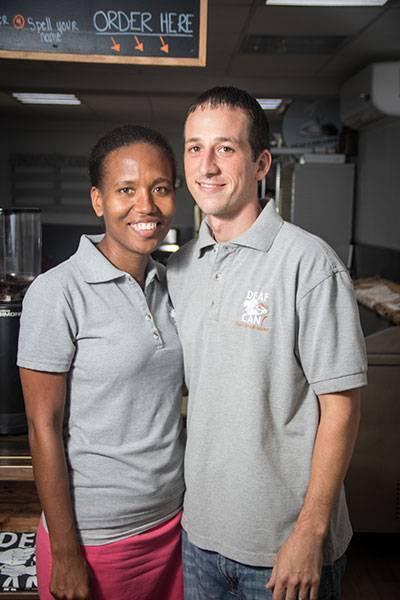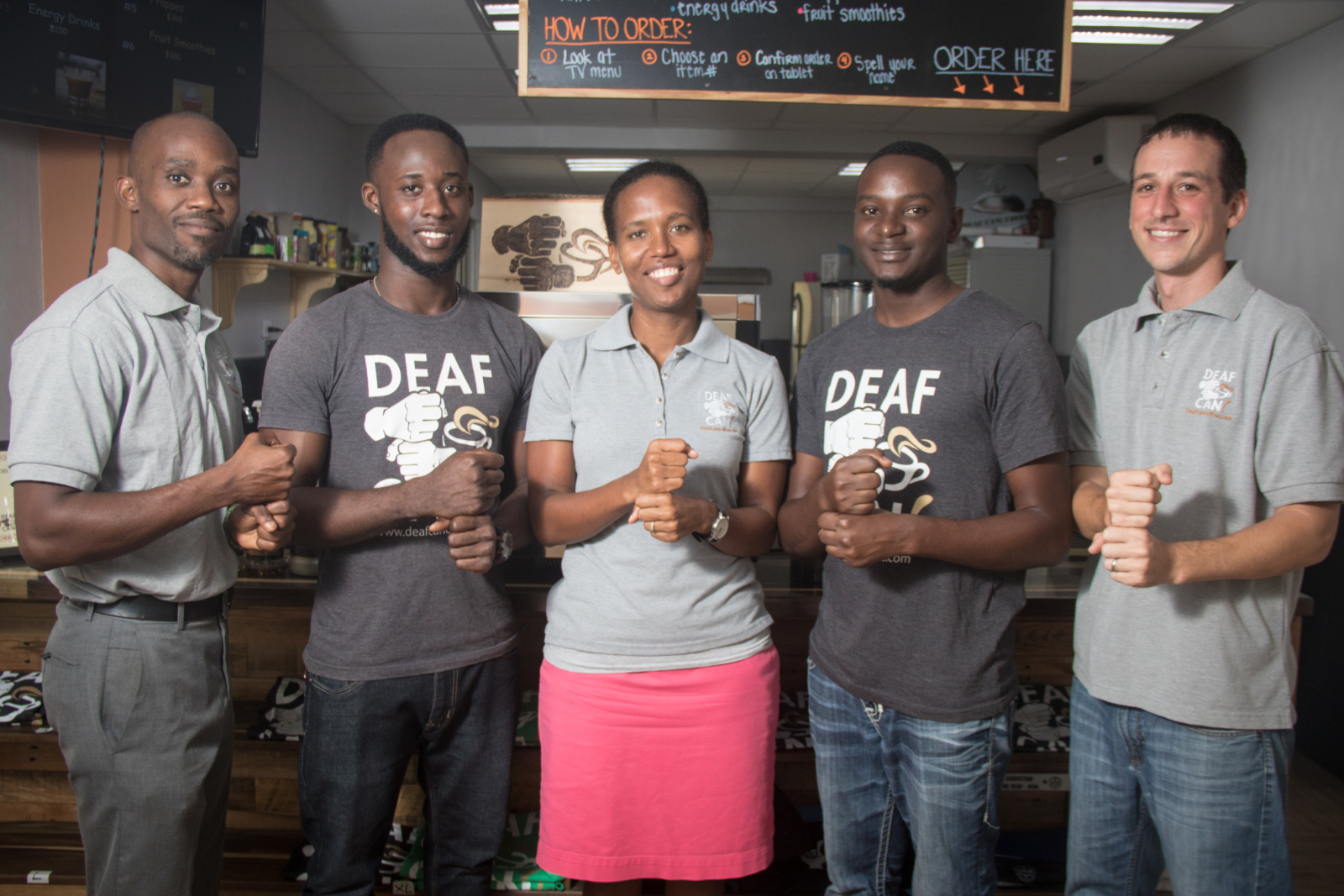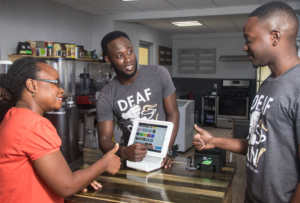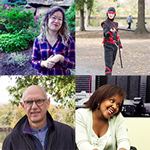Faces Behind the Screen: Deaf Can! Coffee
Quick Links

TASHI: Deaf Can! Coffee really started way before we had the business part of it. I grew up in the rural countryside of St Elizabeth, whereas a Deaf person myself I always had strong role models in the Deaf community. One role model was Everlin Clarke, a coffee farmer. He never went to school, was never educated, was illiterate. But he had sign language and had self-confidence.
He was very skilled, and he was a great example to other people that deaf people can do anything. He had his own small coffee businesses, his own home, family, everything.
Our boys from the school here in Kingston were struggling with self-doubt. They were struggling with self-esteem issues, often saying, “I’m deaf. I can’t do that. I can’t succeed in the world, it’s too hard.”
We really wanted to encourage them to believe that they could. So my husband and I, Blake and I, talked about it. We decided to take them out to the countryside to meet Clark.
The boys were so inspired by him.
They started thinking about roasting coffee too. They practiced with a Mr. Coffee machine that was an old, cheap machine, but they started playing around with it just for fun. Then they said, “Why don’t we set up a small coffee shop near the school to sell people our coffee drink?”
It was just kind of fun to do it on campus. But then Blake and I thought, “Oh, that might actually be a good training program.” So we started thinking about formalizing it. We applied for a grant to build it out a little bit more and got the grant through a local foundation here.
The program then changed to be about the students here.
We wanted the message to the world to show that deaf people can do anything. And so we came up with the name to be Deaf Can! Coffee.
So that’s where it all started.

TASHI: I was born into a Deaf family. My parents believe that I was born hearing, and then, as an infant at nine months old, I got sick. They thought that that impacted my hearing.
But I really feel like I’ve been Deaf my whole life. I don’t have any recollection of anything other than that.
I had communication access from the beginning. My parents signed, my family signed. I’ve been Deaf my whole life. And 30 years later, I’m still Deaf and happy about it.
People see somebody who can’t hear, and that leads to a negative premise on which everything else builds on.
I wish that hearing people would look at the personhood, our being, first, instead of looking at what’s different about us. Don’t look at us as a disabled person. Don’t look at us as hearing impaired.
Look at us as a person. See that we are a person. See what we can do. Ask us what our interests are, and get to know the person first before you make any assumptions about who they are and what they can or can’t do.
I would love to see hearing people desire to learn more about our language, learn more about our culture, our deaf identity, and realize that we, as Deaf people, can work right alongside and with you.
There are so many stereotypes that are placed around Deaf people. So that’s what I wish people would change.
TASHI: After Deaf Can! Coffee opened, people started hearing about it and coming. They were very curious, especially about the name, Deaf Can. They’d ask, “What does that mean?”
It was an opportunity every time they asked to explain to them that deaf people are not limited because of a lack of hearing at all.
So we started going out into the hearing society more, and people started to understand the message. They realized that it’s not about a lack of hearing.
If we have inclusion in the community and we’re not treated in a lesser way, people will realize that we can contribute back. And through language access, affirmation of identity, and community inclusion, our knowledge will grow. And we can transfer that knowledge into other areas.
I want to see Deaf Can! Coffee grow. I want to see more people recognize the core message, which is to believe that deaf people can do anything. Yes, we use coffee to show it, but it’s not about the coffee. We want to strive to serve the highest quality coffee drinks to people so that it reinforces the message that Deaf can.
It’s funny because before we got involved in the coffee world, I never really saw the power of coffee and how it could be used as a tool for connecting people, networking, and seeing change. But after we’ve been through this experience, we have realized it’s power.
Faces Behind the Screen is a storytelling project focusing on communities that benefit from a more accessible web.




